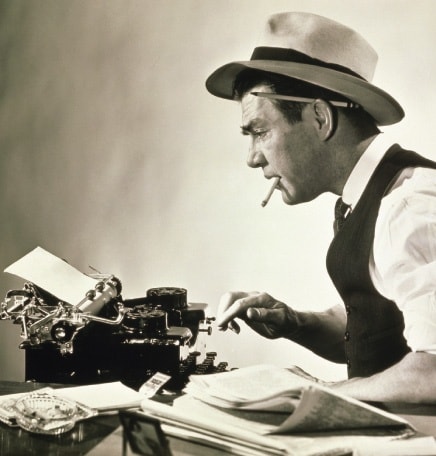 Online media may be revolutionising PR, but good old media relations skills remain vital. PR industry leaders still believe that newspapers must be reviewed, and when it comes to selling in stories to the press, a telephone call is the best way to do it.
Online media may be revolutionising PR, but good old media relations skills remain vital. PR industry leaders still believe that newspapers must be reviewed, and when it comes to selling in stories to the press, a telephone call is the best way to do it.
According to a survey by the PRCA, 71 per cent of the PRCA’s Leaders Panel of agency CEOs and in-house communications directors say they expect their PR practitioners to conduct a daily review of the newspapers and 62 per cent say the best way to contact journalists is by phone.
Discussing the power of media relations, Andrew Marcus, deputy head of communications at the Museum of London, says that the skills needed for effective media relations are the same as those needed for good PR, as it is all about being able to communicate a message. He adds: “The media landscape is changing, but the core skills remain the same. PR officers today should be as comfortable drafting a tweet as they are drafting a press release. They should be equally able to sell in to a journalist or a blogger. He or she should be able to imagine a YouTube storyboard just as they might imagine a feature hitting a national newspaper. And they should have no qualms about being interviewed on camera nor giving a presentation to a live audience. The best PROs are able to get their message across irrespective of the channel.”
Ben Burton, director at PR firm Weber Shandwick, agrees with Marcus that media relations skills are essential: “Building strong links with journalists is crucial and we always look for these skills amongst our new recruits. Many clients still want to see their name in the paper and recognise the reach it gives them.”
Burton emphasises the importance of traditional expertise: “Despite the growth of digital and owned content being able to sell in a good story and engage well with the media in a crisis is still a crucial skill. The key is understanding the news agenda and what will work for different media – that will never go out of fashion.”
“With more and more people working in PR and less and less working in journalism, you would think the flack’s job has got easier than the hacks. But thinning papers means more competition so anyone working in comms needs to be able to craft a newsworthy story and know how best to get a journalist to bite.”
Victoria Leyton, account director at PR firm Lansons, also believes that traditional skills are key, because although media relations is evolving, the basic principles remain the same: “Having the expertise and the knowledge to know how journalists (whether print or digital) operate and the things they need will lead to better results and better relationships. In a world that is getting increasingly faceless, having a good reputation and profile, and knowing other people’s, has probably never been more important.
“It’s all about getting the right information to the right people, and tailoring the messages to get the best result. The most effective way to do that is to understand the key platforms (and it’s not always print) for your clients and get to know the people writing for them, so you can give your client the right advice on the type of stories that work and who is interested in what.”
“Fortunately PROs are adaptable by nature and have recognised the value of understanding the digital space, ensuring they include key influencers across all platforms into any brand advocacy campaign.”
Soundbites
How important is media relations in PR?
Jennifer O’Shea, campaigns manager at PR agency 4mediarelations:
“While it is important that the profession moves with the times, we must not forget that our understanding of the media and strong contacts is one of the key skills our clients pay us for. In broadcast PR, media relations still takes centre stage in everything we do.”
Zoe Ward-Waring, managing director at communications agency Publicasity:
“Media relations absolutely remains a core foundation skill that still has value because of all the good solid basics of networking and relationship development that sits in its heart. There is nothing more effective than a face-to-face meeting to make a connection and create a relationship with the journalist or blogger to gain their trust in you and know what to expect in terms of quality PR.”
Robin Campbell-Burt, associate director at PR agency Spreckley Partners:
"Where media relations comes into its own is when your campaign is trying to influence people's opinion on a subject area. Having your news content covered by a publication will always give powerful third-party support for your message. This is especially important for corporate or B2B campaigns where messages are often complex and target audiences take greater time to analyse and are more sceptical about the credibility of what you say.”
Written by Daney Parker
PR Masterclass: The Intersection of PR and GEO
Wednesday 25th February, both virtual and in person tickets are available.
PR MasterclassIf you enjoyed this article, sign up for free to our twice weekly editorial alert.
We have six email alerts in total - covering ESG, internal comms, PR jobs and events. Enter your email address below to find out more:





